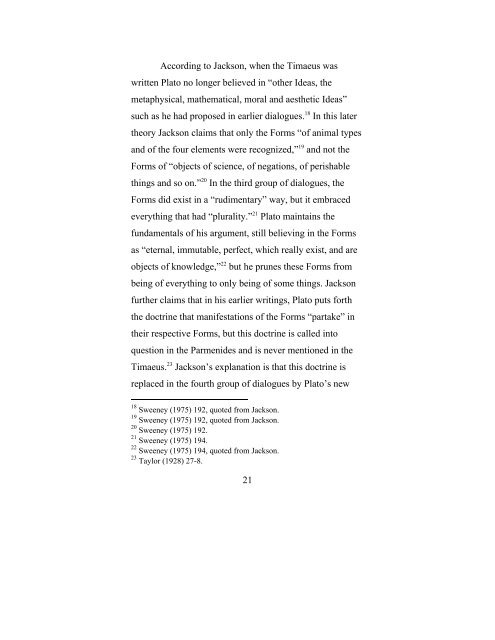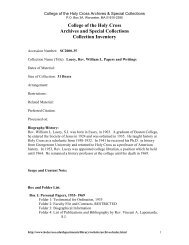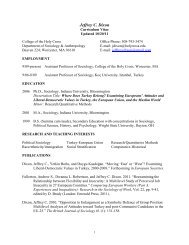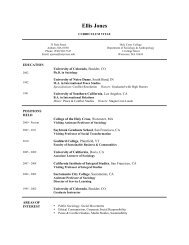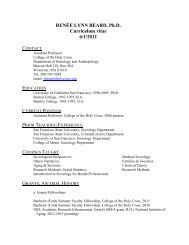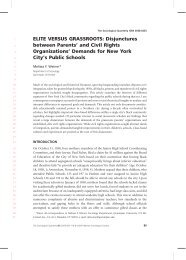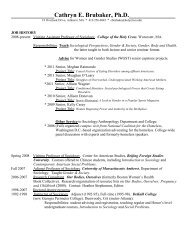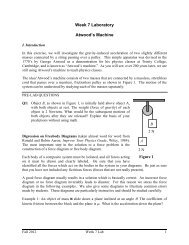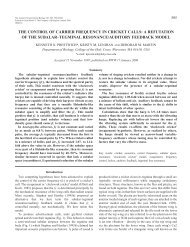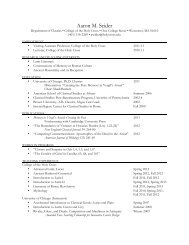Here - Academics - College of the Holy Cross
Here - Academics - College of the Holy Cross
Here - Academics - College of the Holy Cross
You also want an ePaper? Increase the reach of your titles
YUMPU automatically turns print PDFs into web optimized ePapers that Google loves.
According to Jackson, when <strong>the</strong> Timaeus was<br />
written Plato no longer believed in “o<strong>the</strong>r Ideas, <strong>the</strong><br />
metaphysical, ma<strong>the</strong>matical, moral and aes<strong>the</strong>tic Ideas”<br />
such as he had proposed in earlier dialogues. 18 In this later<br />
<strong>the</strong>ory Jackson claims that only <strong>the</strong> Forms “<strong>of</strong> animal types<br />
and <strong>of</strong> <strong>the</strong> four elements were recognized,” 19 and not <strong>the</strong><br />
Forms <strong>of</strong> “objects <strong>of</strong> science, <strong>of</strong> negations, <strong>of</strong> perishable<br />
things and so on.” 20 In <strong>the</strong> third group <strong>of</strong> dialogues, <strong>the</strong><br />
Forms did exist in a “rudimentary” way, but it embraced<br />
everything that had “plurality.” 21 Plato maintains <strong>the</strong><br />
fundamentals <strong>of</strong> his argument, still believing in <strong>the</strong> Forms<br />
as “eternal, immutable, perfect, which really exist, and are<br />
objects <strong>of</strong> knowledge,” 22 but he prunes <strong>the</strong>se Forms from<br />
being <strong>of</strong> everything to only being <strong>of</strong> some things. Jackson<br />
fur<strong>the</strong>r claims that in his earlier writings, Plato puts forth<br />
<strong>the</strong> doctrine that manifestations <strong>of</strong> <strong>the</strong> Forms “partake” in<br />
<strong>the</strong>ir respective Forms, but this doctrine is called into<br />
question in <strong>the</strong> Parmenides and is never mentioned in <strong>the</strong><br />
Timaeus. 23 Jackson’s explanation is that this doctrine is<br />
replaced in <strong>the</strong> fourth group <strong>of</strong> dialogues by Plato’s new<br />
18<br />
Sweeney (1975) 192, quoted from Jackson.<br />
19<br />
Sweeney (1975) 192, quoted from Jackson.<br />
20<br />
Sweeney (1975) 192.<br />
21<br />
Sweeney (1975) 194.<br />
22<br />
Sweeney (1975) 194, quoted from Jackson.<br />
23 Taylor (1928) 27-8.<br />
21


